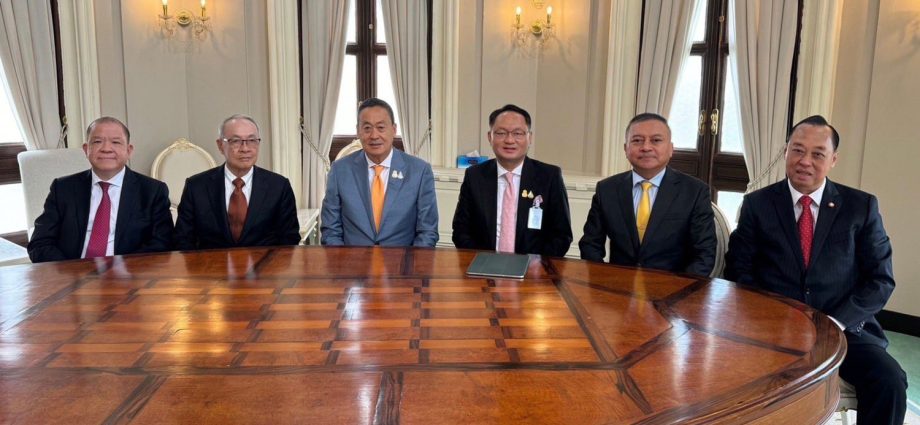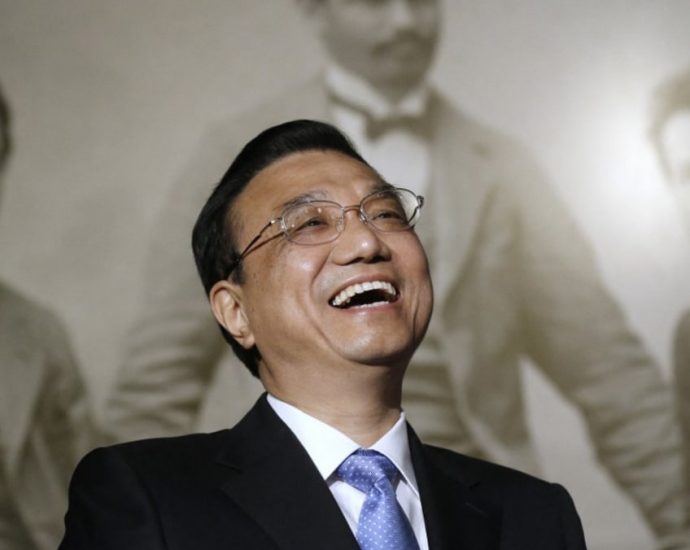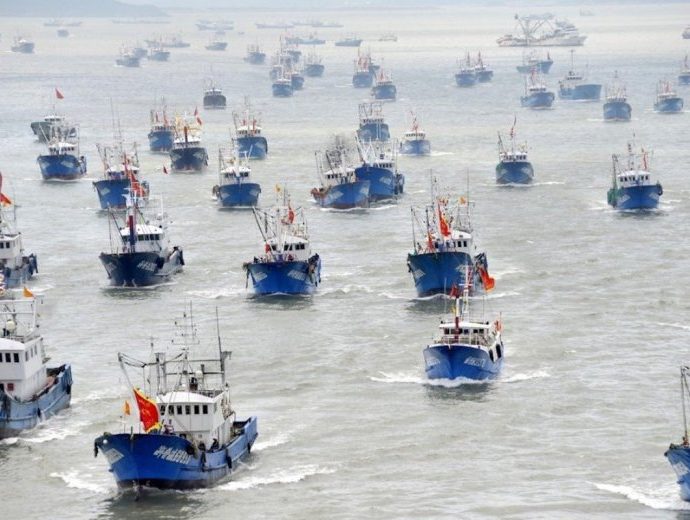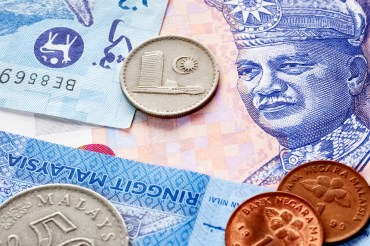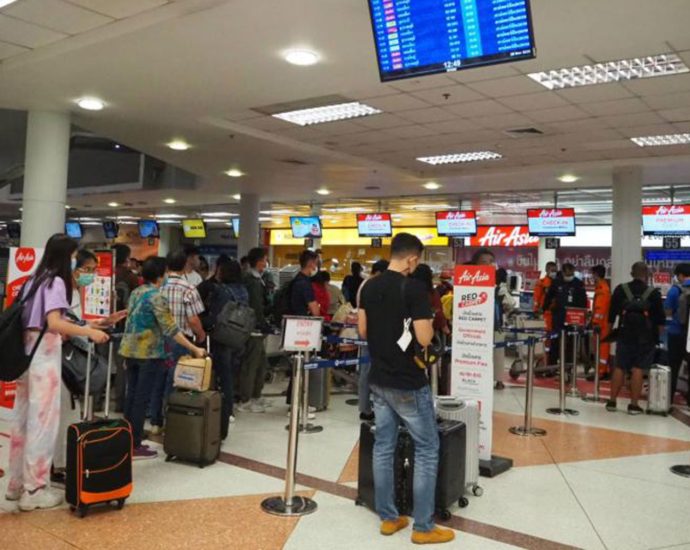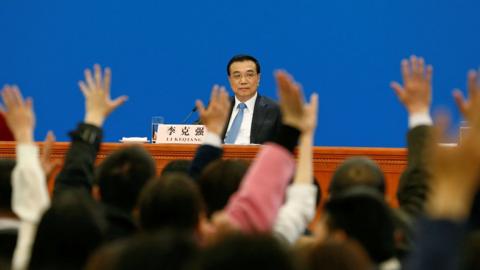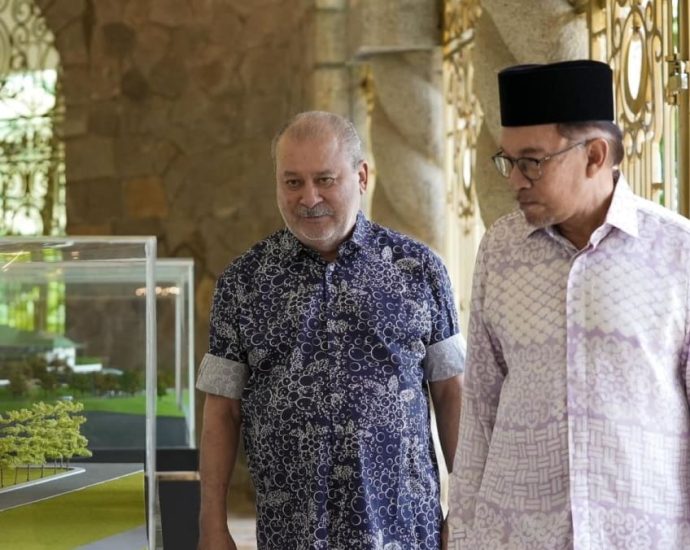PM holds first all-hands meeting with advisers
Srettha also preparing for overnight stays at Government House once renovations are done
PUBLISHED : 27 Oct 2023 at 19:56

Prime Minister Srettha Thavisin says he has held the first meeting with his advisory team at which all members were present.
Mr Srettha, who is also the finance minister, marked the occasion on Thursday at Government House by posting pictures on X (formerly Twitter).
The advisory team consists of Pichai Naripthaphan, Chaikasem Nitisiri, Yuttapong Charasathien, Gen Nipat Thonglek, Songkram Kitlertphairoj and Kittirat Na Ranong. Thai Trade Representative Nalinee Thavisin (no relation) was also featured in the photos.
“This was the first time I met with all five advisers,” he wrote. “I talked about our framework and the responsibilities among the PM’s advisers and the Thai trade representative. I believe that all of you are a major factor in pushing the government’s policies into action.”
The advisory team answers to the Secretary-General to the Prime Minister, Prommin Lertsuridej.
Mr Srettha on Friday arrived at Government House at 7am to preside over a Buddhist rite to mark his taking on the job of prime minister. Ten senior monks from nine temples, including Wat Traimit, Wat Phra Chetuphon and Wat Suthat Thepwararam were invited to the blessing ceremony.
Several key figures from the government participated in the ceremony — including Minister of the Prime Minister’s Office Puangpetch Chunla-ead, Deputy Minister of Foreign Affairs Jakkapong Sangmanee, Mr Prommin, and government spokesman Chai Watcharong.
Mr Srettha announced earlier that he planned to stay overnight at Government House. However, the residential quarters have not yet been completely renovated. “We organised the merit-making ceremony because we had not had one since our government took office,” he said.
Alcohol banned at Tokyo’s Halloween hotspot Shibuya
TOKYO: A ban on alcohol came into force around Tokyo’s tourist hotspot Shibuya on Friday (Oct 27) in an attempt to discourage raucous Halloween gatherings a year after a deadly crowd crush in South Korea. Nearly 160 people were crushed to death in a narrow alleyway in Seoul on OctContinue Reading
In pictures: Li Keqiang’s decade as premier of China
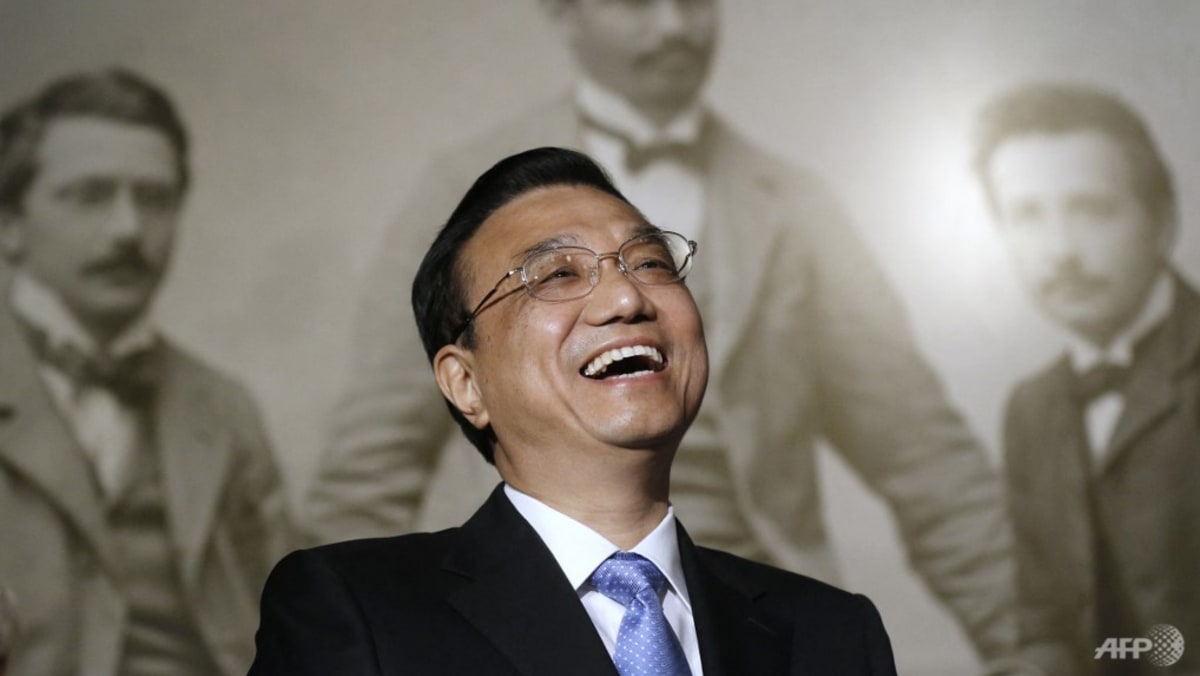
SINGAPORE: Former Chinese premier Li Keqiang has died at the age of 68, just seven months after retiring.
Li was the head of China’s Cabinet under President Xi Jinping for a decade until he stepped down from all political positions in March.
During his 10 years in office, Li met numerous world leaders and was a key figure during crises in China, from natural disasters to the COVID-19 pandemic.
Here is a look back at his tenure.
US-China stuck in a cycle of tit-for-tat ironies
This is the last of three parts. Read part 1 and part 2.
Successful development like China’s leads to a crucial international transition. When countries are poor and weak, they receive special forbearance to encourage their development. All successful developing countries, including the US, stole intellectual property, denied foreigners access to their markets, and heavily subsidized their companies.
Rich countries reluctantly tolerate this and celebrate successful growth in poorer countries. For instance, the US and Europe complained about but took minimal action against Japan, South Korea, Taiwan and Singapore during the early and middle levels of their development. There is still substantial tolerance for extensive trademark theft by Malaysia, Thailand and India.
In my youth, I bought most of my books as knockoffs at Caves bookstore in Taipei and most of my CDs and video disks as knockoffs in Singapore, and later I bought clothes for my family at the Silk Market in Beijing.
But success brings huge scale that begins to distort global markets and create intolerable damage. That threshold occurred in the 1980s for Japan and later for South Korea, Taiwan and Singapore. Japan’s subsidized and protected cars and consumer electronics threatened to destroy all competitors through unfair competition. The US and EU reacted strongly with tariffs, quotas and other measures.
After a difficult decade, Japan (mostly) accepted the rules of fair competition. Since then, Toyota has often been the world’s biggest car company, but Americans and Europeans welcome Toyotas because Toyota’s victories are achieved by building better cars, not by theft and subsidies.
Developing country victim – or superpower global leader?
China’s success has reached that transition point. Take just one of many examples: When the Chinese fishing industry was small and poor, subsidies were acceptable. Now the coasts of North Korea, Africa and India have very extensive communities that have been impoverished by China’s huge, government-supported fishing fleet.
China’s formerly impoverished fishermen are now depleting fishing stocks and creating hunger along the coasts of South Asia, Africa and Latin America.

Likewise, when China was poor, copying American CDs brought a noisy but in practice minimal response. But now the costs to the US of intellectual property theft are estimated at hundreds of billions of dollars annually, and even small venture firms report over 100,000 computer intrusions per day from China.
When CATL and Huawei threaten to destroy all European competitors because they have access to all world markets while the Europeans are constrained in China, the damaaged parties react. Chinese spokesmen often characterize these reactions as attempts to keep China down. No, they are demands that China accept the responsibilities of success.
In the view of an exceptional range of neighbors, as well as their friends and allies in the US and EU, China has evolved from a victim to a predator – because policies that were acceptable or tolerable when China was weak cause serious damage to neighbors and global markets now that China has become a great power.
China, a country nearing the World Bank’s “high income” status, now demands all the special privileges of a weak, impoverished country while simultaneously asserting itself as a powerful global leader that will reshape the world into a community of common interest as interpreted by China. This contradiction is unsustainable.
China’s international contradiction reflects a domestic contradiction. In space exploration, in military technology and in many aspects of manufacturing industry, China is a modern superpower. Shanghai, especially Pudong, is a world-leading 21st century city. China’s trains, ports, airports, telecommunications and universal wi-fi access make the United States look backward by comparison.
Simultaneously, however, China’s rural healthcare systems, its systems to care for the aged, its pension systems, its insurance systems and its rural financial systems are those of a developing country rather than a modern superpower. China’s poverty reduction has been one of the greatest triumphs of human history, but the standard of living for several hundred million people remains very low.

Its fiscal system, which places most social burdens on local governments while retaining most revenues for the central government, has worked because local governments were allowed to be extremely creative, rule-breaking, financially risky and corrupt. Now, the effort to impose strict rules and financial accountability and to eliminate corruption is mak- ing the skewed distribution of responsibilities and revenues an untenable contradiction.
These contradictions arise because China has chosen in the 21st century to emphasize urban modernity and geopolitical glory over universal well-being for its citizens.
If China refocuses on its domestic social challenges, it will have a solid foundation for global economic and geopolitical competition. If China accepts responsibility for international stability, its fishing boats will be as acceptable globally as France’s. CATL and Huawei could enjoy accepted global preeminence, as Toyota does.
US overreaction
The US overreacts to the damage from these transitions, and it reacts fearfully to a challenge to its global primacy. Its unwillingness to accept massive intellectual property theft and destructive unfair competition is rational and reasonable. But, faced with a rival, America’s status insecurity becomes a triumph of passion over calculation.
US political elites often think and talk as if US global leadership, US global dominance, were some kind of moral right. The prospect that some other system might outperform US-style democracy is perceived as a mortal threat.
Faced with a rival, the US consistently exaggerates the capability and potential – and hence the “threat” – of the rival, which led to the extreme overestimates during the Cold War of the size and capabilities and prospects of the Soviet economy and also, in the late 1970s and 1980s, to extreme fear in important quarters of what was seen as Japan’s imminent superiority.
With Japan four decades ago and with China now, much of the Congressional reaction is populist, emotional, ideological and disproportionately fearful.
Faced with a serious competitor, the US is abandoning its strengths. During the Cold War, the US triumphed by creating a coalition of mutual prosperity, based on the Bretton Woods institutions, which triumphed over a Soviet Union that was autarkic and squeezed its citizens and its allies in the service of an overwhelming priority for the military.
In the competition with China, the US has crippled the expansion and modernization of the Bretton Woods institutions because expansion and reform would greatly enhance China’s role. Ironically, this has created a vacuum into which China’s Belt and Road Initiative, its development banks, its industrial standards and its currency swap system have moved. Every attempt by the US to pretend that China is not a big and equal player has backfired.
The US has undermined its own institutional system, refusing to join the UN Convention on the Law of the Sea and the International Criminal Court, preventing the appointment of judges to the World Trade Organization dispute system and abusing WTO rules by falsely arguing that tariffs on things like steel and aluminum are vital matters of national defense.
By abusing the rules-enforcing systems and ignoring the rules, the US undercuts its own core argument for a rules-based system.
By turning inward when the rest of the world is developing the Comprehensive and Progressive Agreement for Trans-Pacific Partnership (CPTPP), the Regional Comprehensive Economic Partnership (RCEP), a more consolidated EU, a Comprehensive Agreement on Investment (delayed, for the time being) and the all-time most comprehensive open trade agreement in Africa, the US risks being left behind by the rest of the world.

Tariffs on steel, aluminum solar panels and much else damage the US more than China. They exemplify the contradictions at the core of Washington’s China policy.
Even more fundamentally, the US responds to a challenge as if it were primarily a military challenge, whereas the whole experience of twentieth-century geopolitics is that the key to long-run geopolitical success is the economic superiority of oneself and one’s coalition.
Military power of course remains important, but Beijing has seemed to understand better than Washington that the path to global leadership lies primarily through economic preeminence, both domestically and in international relationships. The Belt and Road Initiative embodies that understanding, just as US emphasis on the Bretton Woods system once did.
The two countries’ contrasting strategies in Africa (building infrastructure versus providing anti-terrorist military teams) symbolize that difference. America’s inward turn weakens its own economic performance and increases tensions with allies and partners. Gutting its diplomatic arm, its aid programs and, in 1999, its information service (the United States Information Service) has combined with its meager support for the Bretton Woods institutions to weaken its global leadership role and raise the risk of military conflict.
Ironically, the current administration in Washington justifies all this as “a foreign policy for the middle class,” based on the manufacturing jobs fallacy analyzed at the beginning of this essay.
Tit for tat ironies
In another layer of irony, however, China appears to be duplicating this American error as it raises the priority for security relative to economic development.
For three decades, the leaders of China and America wisely created perhaps the greatest generation of peace and development in human history. There were differences, conflicts, tensions and risks, and there always will be. But currently, both sides are magnifying the problems rather than managing them.
Both sides are avoiding difficult domestic dilemmas by blaming problems on the other. Both are pursuing geopolitical aspirations in ways that harm their domestic economies and popular welfare. In both cases, doing this actually weakens their long-term geopolitical prospects.
A reset will require not just diplomatic adjustments, but also fundamental shifts in the management of domestic politics.
William H Overholt ([email protected]) is senior research fellow at the Harvard Kennedy School’s Mossavar-Rahmani Center for Business and Government.
This article, first published in the China International Strategy Review, is slightly abridged and republished under a Creative Commons Attribution 4.0 international license.
Beyond the yen, ringgitâs free fall the one to watch
SINGAPORE – Malaysia’s central bank is under pressure to steady the flagging national currency, the ringgit, which in recent days fell to new multi-decade lows against the US greenback and neighboring Singapore dollar.
Analysts say Bank Negara Malaysia (BNM) now faces a trade-off between raising rates and stifling an already sagging domestic economy or posing risks to financial stability by failing to act. Malaysia’s offshore borrowings, widely denominated in US dollars, amounted to 30 billion ringgit ($6.2 billion) as of August 2023.
Like other emerging market currencies, the ringgit has depreciated this year against a strong US dollar. But the extent of the slide – now the worst performer in Asia after the Japanese yen – has, according to BNM Governor Abdul Rasheed Abdul Ghaffour, belied Malaysia’s otherwise strong economic fundamentals and resilient banking sector.
“We are not in a crisis. It is different from what we experienced in the past,” Abdul Rasheed told reporters earlier this week, referring to the 1997-98 Asian financial crisis when the ringgit hit a benchmark low of 4.88 ringgit to the US dollar in March 1998.
The currency has in recent days tumbled to its lowest levels since, slipping to 4.79 to the US dollar on October 23 and hovering at 4.77 at the time of publication.
The ringgit has dipped by approximately 8.64% to the US dollar so far this year. The currency also breached a record low of 3.48 against the Singapore dollar this week, while also trading lower against most other Asian currencies. Malaysia’s currency traded at 3.48 to the Singapore dollar at the time of publication, depreciating around 6.4% this year.
The BNM governor said recent ringgit fluctuations appear to be driven primarily by geopolitical events, wherein the US dollar has strengthened on safe-haven demand amid concerns about an escalation of the Israel-Hamas conflict into a wider regional war.
“It certainly does not reflect our economic fundamentals,” Abdul Rasheed said, pointing to Malaysia’s current account surplus and moderating inflation.

But seven straight months of decline in exports through September, due in part to weaker-than-expected demand in China, Malaysia’s largest trading partner, has weighed against the ringgit.
The local market, meanwhile, saw net portfolio outflows in the first half of 2023, with global funds reportedly selling off US$324 million of Malaysian stocks in October alone.
“Besides the higher interest rates in the US, which attracted capital outflows from [Southeast Asian] economies as investors seek higher returns…. weaker prices for commodities such as palm oil and liquefied natural gas, which constitute a significant share of Malaysia’s exports, have also affected the country’s export earnings,” said Tan Wen Wei, Asia analyst at the Economist Intelligence Unit (EIU).
BNM paused hiking rates in July, holding its overnight policy rate (OPR) at a record 250 basis point discount relative to the upper bound of the US Federal Reserve funding rate. That widening rate differential has put Malaysia’s central bank on the horns of a policy dilemma given that narrowing the rate gap to stem outflows would require raising rates and hurting the local economy.
Governor Abdul Rasheed told an October 23 press conference that the central bank is committed to taking all necessary measures to maintain a “smooth and controlled adjustment of the ringgit.” He said the BNM possesses “an array of market measures” and is ready to support the sliding ringgit should the need arise, without elaborating on the conditions that could cause the central bank to intervene.
Analysts are of two minds about whether the BNM should raise the OPR to reduce the interest rate differential with the US or pursue other policy options, such as intervening in foreign exchange markets or even imposing capital controls as it did in 1998 at the height of the Asian financial crisis.
“The imposition of such controls [would] risk eroding investors’ confidence and the banking system is better capitalized right now as compared to the past… We do not think BNM will go down this route,” said Tan. “The most palatable option to the BNM will be foreign exchange intervention. This measure has temporary and limited impact, thus it is not sustainable for prolonged periods.”
Deputy Finance Minister Ahmad Maslan said earlier this week that raising the OPR, now at 3%, may no longer be “relevant” given that Malaysia’s headline inflation rate slowed to 1.9% year-on-year in September, marking the first time inflation was below 2% in nearly three years.
He assessed that the US federal funds rate (FFR), now at 5.5%, would likely remain elevated for an extended period as the Federal Reserve seeks to control inflation that, while far lower than a year ago, is proving difficult to tame. Analysts are split about whether the US Fed will raise interest rates at its upcoming October 31 to November 1 meeting.
“Even if the OPR is raised despite easing inflation in the economy, the positive effect on the ringgit will likely be overwhelmed by US rate hike expectations,” said Yeah Kim Leng, a senior fellow and director of the Economic Studies Program at the Jeffrey Cheah Institute on Southeast Asia at Malaysia’s Sunway University.

“Given that currencies under floating exchange rate regimes are prone to misalignments and overshooting, Malaysia’s economy is better off whereby policymakers continue to focus on strengthening the country’s underlying fundamentals. Meanwhile, BNM should continue its policy to smoothen adjustments but not determine the ringgit level or deplete its reserves in its defense.”
Malaysia’s government says 2023 gross domestic product (GDP) growth will come in at the low end of its 4% to 5% forecast after third-quarter growth rose by 3.3%, up from 2.9% in the previous quarter. The World Bank earlier this month revised down its full-year growth forecast for Malaysia to 3.9% from an earlier 4.3%, citing limited fiscal space as a key macroeconomic challenge.
Prime Minister Anwar Ibrahim tabled an expansionary 393.8 billion ringgit ($83.29 billion) budget, the nation’s largest-ever spending plan, on October 13. The plan will gradually cut subsidies on products like petrol, cooking oil and rice that the administration says have disproportionately benefited the rich. The government intends to shift away from blanket subsidies to a system that mainly aids lower-income earners.
“On the domestic front, the recent budget announcement to implement targeted subsidies for diesel and the removal of price caps for chicken and eggs will lead to higher inflationary pressures in the near term, reducing the real returns on investment,” said the EIU’s Tan. “Foreign investors may then seek higher returns elsewhere, and demand for the ringgit is reduced as a result.”
The EIU forecasts that BNM will maintain its OPR at 3% this year. “Tightening the OPR now will weigh further on economic growth, which we think is BNM’s priority now, given that inflation is under control,” said Tan, who added that China’s stronger-than-expected third-quarter GDP figure of 4.9% indicated that its economy may be stabilizing, which in turn could support Malaysia’s fourth quarter trade outlook.
Carmelo Ferlito, an economist and chief executive officer of Kuala Lumpur-based think tank Center for Market Education, argues monetary policy is “an ineffective tool” for firming up the ringgit, which he believes is falling mainly due to external factors. He suggests a consistently pro-market approach to domestic policy would be more effective to stem the currency’s slide.
“The most important factor is the abundance of conflicting messages from the policy perspective. We get commitment to fiscal discipline and yet the biggest budget ever. Price controls were removed only recently despite statements in favor of a pro-investment eco-system,” he said, pointing to pro-market stances amid policy hints of a bigger government role in the economy.
Analysts are mixed on whether the currency could breach the psychological five ringgit to the dollar mark amid prevailing headwinds and uncertainties. Sunway University’s Yeah said the risk of further depreciation cannot be ruled out given the possibility of further interest rate hikes by the US Fed to achieve its 2% inflation target.

“However, slowdown signs and fiscal and financial stresses are emerging in the US economy that suggests a reversal of interest rate uptrend and the dollar strength is imminent in the coming quarters. Malaysia may not see a breach of the psychological five ringgit to a dollar mark if the US economy deteriorates sooner than later,” he told Asia Times.
The EIU’s Tan agreed that a five ringgit per US dollar breach remains unlikely, owing to China’s economy showing signs of stabilization after a lackluster post-pandemic recovery. The research unit maintains its view that the US Fed will not raise interest rates further, assuming US inflation continues to ease and consumer demand softens in September-October.
“A potential slowdown in the US economy may also allow the Federal Reserve to pause and assess if a further rate hike is warranted,” Tan added. “All this is based on the assumption that the Israel-Gaza crisis remains contained. Any escalation into a regional conflict may lead to investors seeking the dollar as a safe-haven, putting further depreciatory pressure on the ringgit.”
Follow Nile Bowie on Twitter at @NileBowie
Chiang Mai airport to operate around the clock
Minister expects move could increase international arrivals to northern province by 30%
PUBLISHED : 27 Oct 2023 at 17:36

Chiang Mai International Airport will begin operating around the clock from next Wednesday as a response to the government’s Quick-Win economic stimulus policies, according to Transport Minister Suriya Jungrungreangkit.
He said Prime Minister Srettha Thavisin deemed the expanded hours necessary given the expectation that tourists will be flooding in during the year-end peak season, and in future thanks to visa exemptions for visitors from Chinese and Kazakhstan, among other factors.
Airports of Thailand (AoT) has confirmed that the airport in the northern province will expand its hours, currently 6am to midnight, to around-the-clock operations from Nov 1.
A direct flight from Chiang Mai to Osaka in Japan operated by Thai VietJet will be the first flight to depart once the change is made. It will leave Chiang Mai at 12.30am that day.
Mr Suriya said the ministry had asked AoT to hold talks with carriers and related parties about appropriate flight routes and schedules to take advantage of the expanded hours.
Operations must follow the airport’s environmental impact assessment guidelines, especially for noise, to ensure the least impact on residents living nearby. A suitable compensation plan for those who will be affected will also be discussed.
AoT will will also hold a public hearing for area residents later, said Mr Suriya.
Chiang Mai airport currently welcomes about 4,800 visitors from 20 international flights a day. The government expects 24-hour service will increase international passenger numbers by about 30%, said Mr Suriya.
Novena MRT station closed after smoke detected; commuters evacuated

SINGAPORE: Novena MRT station on the North-South Line was closed on Friday evening (Oct 27) after staff detected smoke inside the station.
“For the safety of our commuters, they have been evacuated and the station was closed,” transport operator SMRT said in an update on Facebook at about 6.30pm.
There is no smoke detected in the tunnel, it added.
“Train services on the North-South Line remain available but are skipping Novena station in both directions.”
Free regular bus and bridging bus services are available between Toa Payoh and Newton in both directions.
When contacted for more information about the incident, SMRT referred CNA to its social media channels.
The Singapore Civil Defence Force (SCDF) said it was alerted to an incident at Novena MRT Station at about 5.30pm. It is currently at the scene investigating.
Thai casino worker found dead in Cambodia
Thai suspects reportedly sought after body found dumped in well in border town of Poi Pet
PUBLISHED : 27 Oct 2023 at 17:16

SA KAEO: A black bag containing the body of a Thai casino worker was found dumped in a well in a rice field near the Cambodian border town of Poi Pet, police said on Friday.
Cambodian police believe Thai nationals were responsible for the man’s death, according to Pol Com Roong Thongmon, chief of immigration police in neighbouring Sa Kaeo province.
He said he was informed by Poi Pet police that the bag was found on Tuesday morning by local residents near Koup Thom village, about 30 kilometres from the Thai border. They reported it to Poi Pet police.
The villagers reportedly told police that the bag was brought on a motor-tricycle by two or three Thai-speaking men who dumped it into the well.
The witnesses said they opened the bag and found the body of a man, with no identifying documents. Poi Pet police subsequently took the body to Poi Pet Hospital.
Pol Col Roong and Pol Col Pattanachai Pamornpiboon, the Khlong Luek district police chief, crossed the border to examine the body on Wednesday. An investigation revealed that the body was that of a Thai man identified as Padungkiat, 31, from Chiang Saen district in Chiang Rai.
The man worked as an employee at a casino in Poi Pet.
On Thursday, police contacted the man’s family in Chiang Rai and the family said they would come to Poi Pet on Friday.
However, Thai police were subsequently informed by their Cambodian counterparts that the body would be cremated at a temple in Poi Pet on Thursday at 5pm and remains would be collected and sent to his relatives later. The family agreed.
Why Li Keqiang’s death is dangerous for Xi Jinping
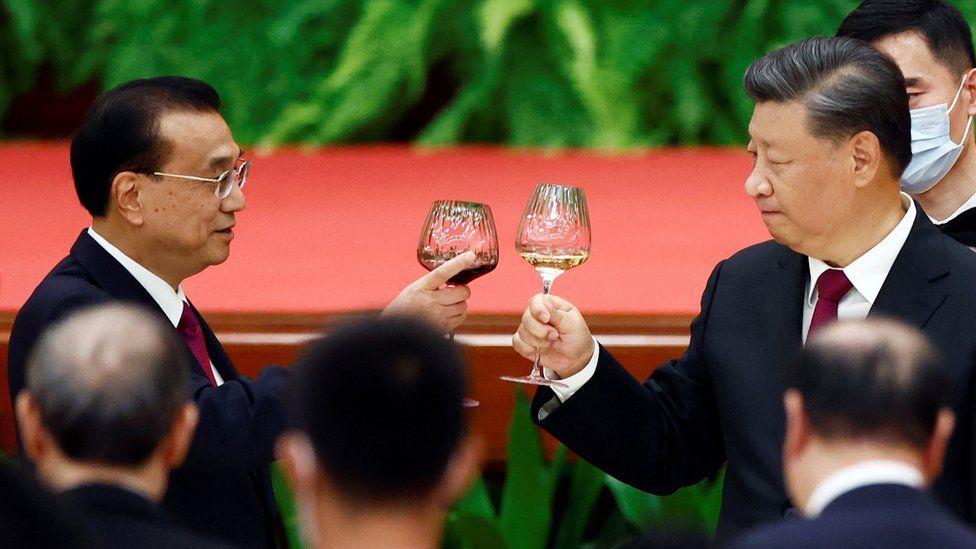 Reuters
ReutersThe death of a leader in China can usher in big changes, it did after Mao Zedong, or can lead to political upheaval, like it did when grieving for Hu Yaobang morphed into the 1989 Tiananmen Square protests.
For this reason, the passing of former premier Li Keqiang has already triggered various measures to ensure that stability is maintained.
A crackdown on VPN use is underway to reduce the access of Chinese citizens to the parts of the internet not controlled by the Communist Party.
The Party doesn’t want mourning for a popular, liberal, former number two leader to generate wider criticism of the current administration, led by Xi Jinping.
It is not just that Li died so suddenly, suffering a heart attack just months after stepping down, but because of what he represented: a way of potentially governing China with different priorities to those of the General Secretary Xi.
He was a bright pragmatist who didn’t seem so concerned with ideology. And this is one reason why he cut such a lonely figure in the previous, seven-man Politburo Standing Committee, the country’s most powerful decision-making body.
Then there’s what would become known as the “Li Keqiang Index” which was born via a famous US state department memo, and came to light in Wikileaks. As the then Party Secretary of Liaoning Province, Li is said to have told the US ambassador in 2007 that the local GDP figures were unreliable as a way of judging economic health.
He reportedly said that he used three other indicators to analyse growth: railway cargo volume, electricity consumption and bank loan disbursements.
Criticising China’s official statistics, even behind closed doors, to the Americans cannot have gone down well with his political opponents.
The former premier was considered one of the smartest political figures of his generation. He was accepted into the prestigious Peking University Law School soon after the universities were reopened following Chairman Mao’s disastrous Cultural Revolution.
In a Party dominated by engineers, he was an economist, who become known for “telling it like it is” by honestly and publicly acknowledging China’s economic problems as a means of finding solutions to them.
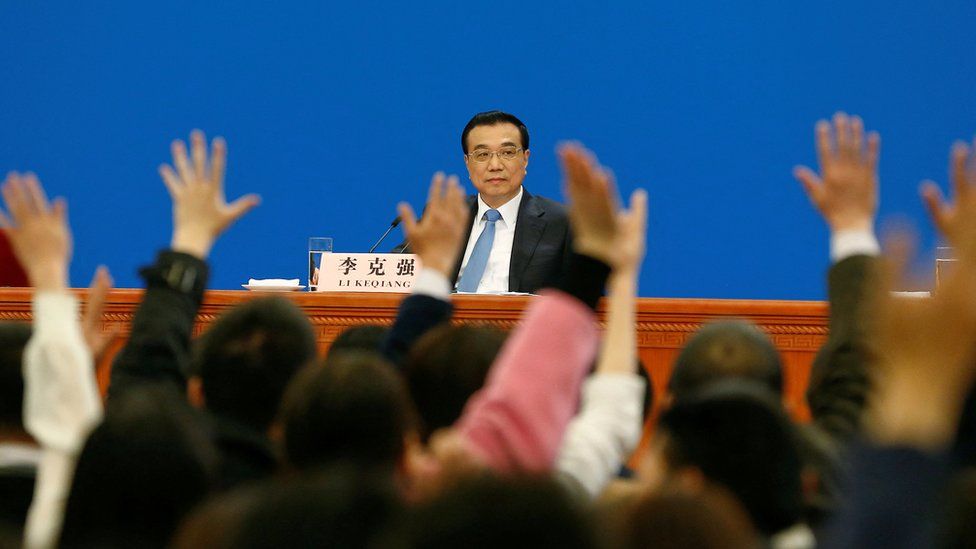
During the recent pandemic, he spoke about the damage which Mr Xi’s signature zero-Covid approach was doing to the economy, and to ordinary Chinese.
Naturally, he didn’t question the country’s paramount leader directly, or the policy itself, but he didn’t sugar coat the impacts of the amelioration measures either.
In May 2022, during a virtual meeting said to involve more than 100,000 government and business representatives, he first spoke highly of the “effective work” from officials facing “unexpected challenges” during the crisis but then he went on: “The difficulties, in some areas and to a certain degree, are even greater than the severe shock of the pandemic in 2020.”
He added that there was a clear way forward, saying that “development is the basis and key to solving all problems in China”. It’s worth nothing that he said development, not ideological vigour.
“To do a good job of epidemic prevention and control, we need financial and material resources. We need development to support stable employment, people’s livelihoods and risk prevention,” he said.
In May last year, with the zero-Covid policy still in place, he appeared unmasked at a university in Yunnan province. And neither the students nor officials gathering around him were wearing masks. This spurred viral discussion on social media, with posts praising the premier. Soon the hashtag #PremierAtYunnanUniversity was being censored.
This video can not be played
To play this video you need to enable JavaScript in your browser.
During the first year of Covid, as the person technically in charge of the economy, Li decided to promote the job creating capacity of street stalls and was seen visiting street vendors in Shandong Province. Business was already heading into difficult waters, and he said that this type of commerce could add vitality and create more jobs.
Almost immediately, street vendors were back on the streets of Beijing, after having been banned for years. But they were never going to be allowed to stay, not under Mr Xi’s vision of what the Chinese capital should look like.
Within days of Li’s so-called push to revive street stalls, the move was already being undermined in the Beijing Municipal Party Committee’s newspaper, The Beijing Daily. It ran a commentary saying that street stalls were “unhygienic and uncivilised”. Other state media then joined with similar messages.
That the city government could so quickly – and so publicly and effectively – overturn a suggested policy by the premier of the country, showed just how limited his power had become.
Under the previous government of Hu Jintao, with its collective leadership, this would not have been possible. Various factions within the Party had to be balanced.
But under Mr Xi it is either the Xi Jinping way or the wrong way.
Before Li stepped down in March this year, he was the last senior government figure linked to the Hu-era and its way of doing things.
His presence represented another time, a less politically zealous approach, which focused more on business activity than party sloganeering.

As a fluent English speaker, he could be very charming when meeting foreign leaders. He would also wave and smile to journalists gathering to film his official meetings.
That his death has come just months after the unexplained removal of the high-profile Foreign and Defence Ministers has only added to its potential sensitivity.
The coming official ceremonies remembering him will be handled very carefully, lest they even slightly prompt a sympathetic view of the former Premier which might conflict with government’s current path.
Those watching Chinese social media platforms will be monitoring the outpourings of sadness and shock online, as ordinary people remember him.
Li came through the ranks of the Communist Party at the same time as Mr Xi and, at one point, was in the running to become General Secretary himself, instead of Mr Xi.
Much speculation has been made of what China might have been like now, had Li taken the reins as paramount leader.
Related Topics
Analysis: Johor Sultanâs outspoken nature, ties with Singapore and China set to figure in his rule as Malaysiaâs king

The sultan was quoted as saying in a report by The Star: “We have worked very well together. I would say it’s better than any other previous prime ministers.”
Dr Azmi said this was an indication that Sultan Ibrahim has confidence in Mr Anwar’s leadership in the federal government.
“I think this is a prime minister that Tuanku (Sultan Ibrahim) wants to work with,” said Dr Azmi.
“I think it will be a very interesting relationship and I think it will be good for the country because we have a king that really speaks out his mind but at the same time is willing to work alongside this prime minister,” said Dr Azmi.
He elaborated that having a king who is willing to speak on behalf of the people, and a leader like Mr Anwar who has shown that “he is keen to listen” are signs of “a strong partnership”.
Political analyst Awang Azman Awang Pawi of Universiti Malaya echoed similar sentiments, and said that it will be “intriguing” to see how the federal government reacts when it receives feedback on certain matters by Sultan Ibrahim after he is installed as YDPA.
He cited how for instance Sultan Ibrahim’s comments on low-cost housing in Johor as well as on MM2H recently has prompted the federal government to take action.
In response to Sultan Ibrahim, Local Government Development Minister Nga Kor Ming had pledged that his ministry was determined to address the living conditions of the houses and pledged to resolve the waste disposal issue in two days.
In his recent Budget speech, Mr Anwar also announced that the government is willing to loosen restrictions for MM2H so that more foreigners can purchase homes in Malaysia, potentially increasing investment into the country
“This is a sign that the Anwar government takes Tuanku’s feedback very seriously,” said Assoc Prof Awang Azman.
“His Majesty has interest in these matters and when he becomes king, it is likely that his influence will be amplified further and he will speak out on issues impacting not just Johor but across the country,” he added.
KING TO STAY NEUTRAL AND ABOVE POLITICS
Sultan Ibrahim was elected during the Conference of the Rulers on Friday, in which all nine sultans in the country voted on who will be the next head of state, also known as Yang di-Pertuan Agong (YDPA).
The decision follows the established order of Malaysia’s unique rotational monarch system in which the nine rulers take turns to be the YDPA for five-year cycles.
Malaysia’s Constitution also states that the YDPA must remain neutral and above politics. The monarch’s role in Malaysia is also more symbolic and ceremonial, and on key political decisions he acts on the advice of the prime minister.

